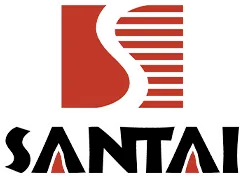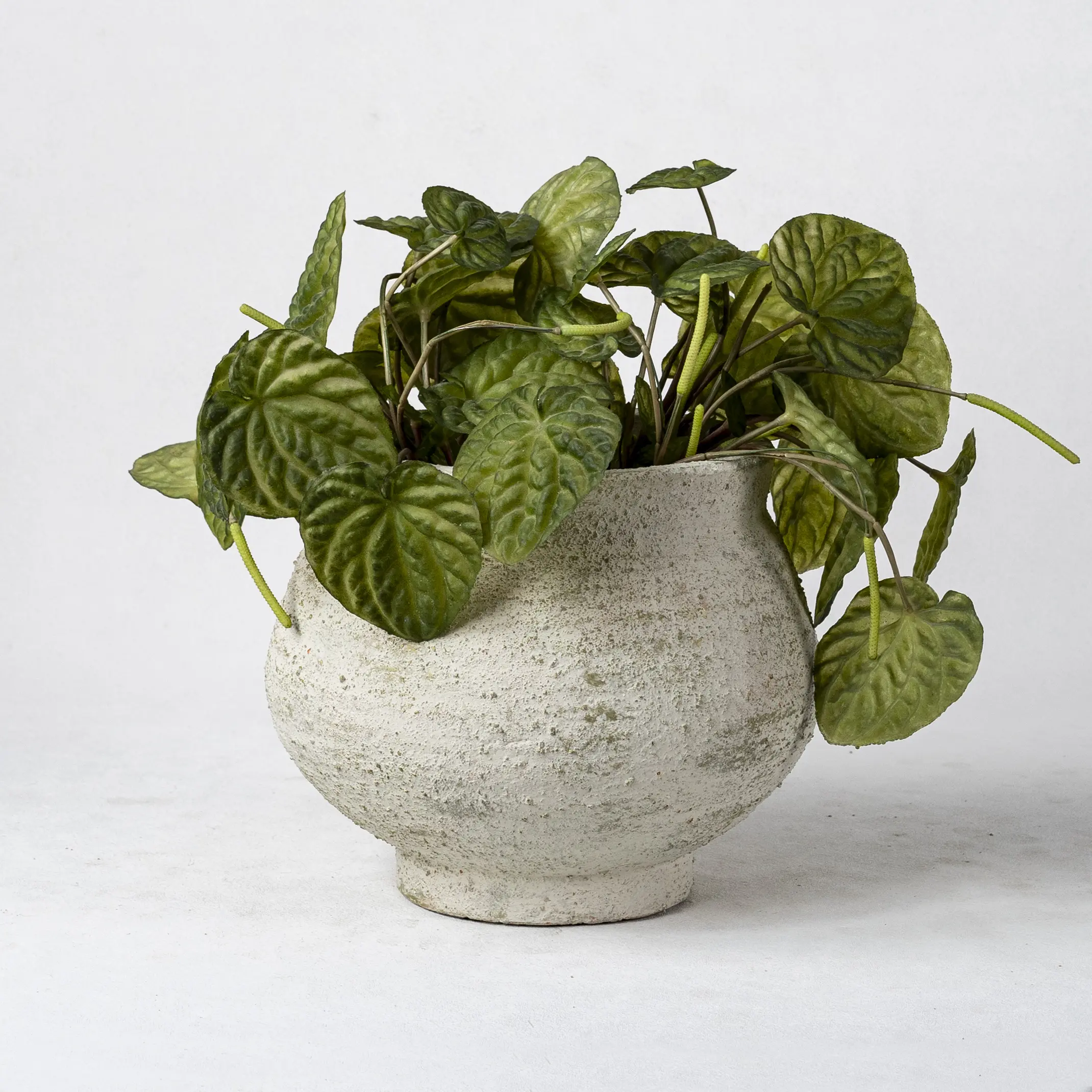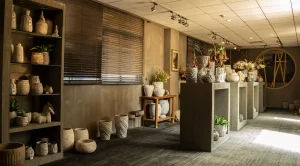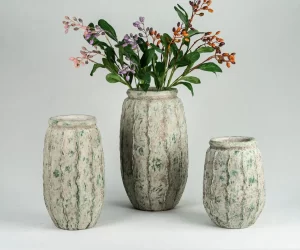Дифференциация имеет решающее значение в условиях жесткой конкуренции на рынках розничной торговли и гостиничных услуг. Индивидуальные керамические горшки для цветов могут превратить обычные керамические изделия в бренд и повысить его ценность.
Эта статья, доставленная Сантаем, а профессиональный производитель керамического декораВ кратком и практичном руководстве вы узнаете о значении персонализации для бизнеса, о конкретных проявлениях персонализации на практике, а также о том, как управлять производством, ценообразованием и маркетинговыми стратегиями.
Почему персонализация имеет значение
Персонализация - это не прикол, а практическая стратегия долгосрочного повышения ценности бренда и эффективности продаж. Для лиц, принимающих решения о закупках, и операторов магазинов персонализированные керамические изделия приносят четыре количественно измеримых преимущества для бизнеса:
Увеличение премии и валовой прибыли (ценовая премия)
Потребители готовы платить более высокие цены за "уникальные/ограниченные серии" и "сюжетные" товары. Перекрашивание одного и того же тазика в эксклюзивный для бренда цвет или добавление эмблемы магазина часто может повысить розничную цену на 20-50% (в зависимости от категории и рынка).
Предложение по эксплуатации: Установите персонализированную версию в качестве id-премиум или премиум-сегмента и повысьте воспринимаемую ценность с помощью более изысканной упаковки и сюжетных карточек.
Повышение лояльности клиентов и увеличение числа повторных покупок
Кастомизированные продукты легче хранить и демонстрировать, они становятся эмоциональной связью между потребителями и брендами. B2B-клиенты (кафе, отели), заполняя пространство горшками с собственным логотипом, повышают согласованность бренда и способствуют распространению "сарафанного радио".
Рекомендация по KPI: Отслеживайте рост числа повторных обращений и пользовательского контента (UGC).
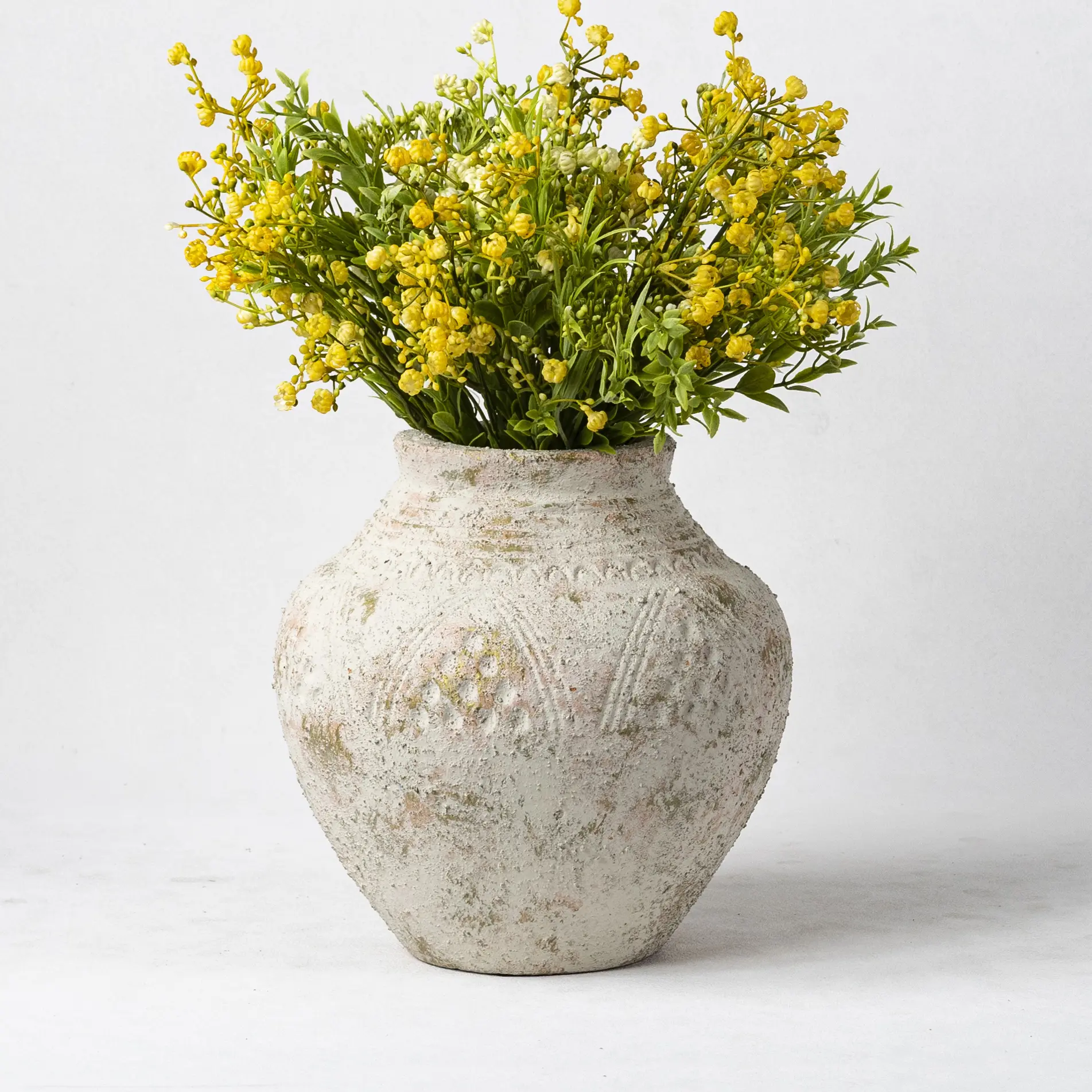
Дифференциация и антиплагиат
Стандартизированные массовые товары легче копируются конкурентами; кастомизация позволяет уникально идентифицировать SKU и снижает риск ценовых войн.
Оперативное предложение: Предоставьте эксклюзивные цветовые коды или ограниченное количество текстур для ключевых каналов (флагманские магазины, крупные гостиничные сети) и закрепите эксклюзивные права на определенные зоны/периоды, чтобы договориться о более выгодных условиях.
Усиление маркетинга и социальных сетей
Персонализированные керамические изделия с большей вероятностью станут реквизитом для фотографий, способствуя спонтанному распространению Instagram/TikTok. Удачный визуальный показ может принести высокую популярность и трафик за короткий период времени.
Быстрая тактика: Запустите предпродажу "ограниченного предзаказа", которая позволит проверить рынок и собрать средства на производство.
Параметры настройки
Ниже приводится подробное объяснение, способ реализации, влияние на стоимость и сценарии применения распространенных настраиваемых элементов для керамических изделий, что способствует быстрому принятию решений между вами и клиентами во время переговоров.
Брендинг и логотипы
Методы: подглазурные деколи, надглазурный перенос, вкрапление/выбивание логотипа, ручная роспись, лазер и т.д.
Стоимость/влияние: Низкая стоимость деколей и тиснения, подходящая для массового производства; ручная роспись и изготовление небольших партий на заказ имеют высокую стоимость, но высокую воспринимаемую ценность.
Пример использования: Тиснение или наклейки для сетей ресторанов (долговечные и единообразные); бутик-отели используют нарисованные или подписанные вручную предметы в качестве подарков или витрин в холле.
Цвет и глазурь (точность цветопередачи бренда)
Опции: глазури, созданные по индивидуальному заказу в соответствии с PANTONE, реактивные глазури с контролируемой пестротой, двухцветная отделка (контраст интерьера и экстерьера).
Затраты/влияние: Для подбора цвета требуется многократный обжиг плитки, что может повлечь за собой расходы на образцы; специальные пигменты или кластеры (блестящий металл) увеличивают затраты.
Пример использования: Брендам DTC lifestyle требуется собственный основной цвет для распознавания витрин в офлайне; индустрия общественного питания может выбрать легко очищаемую цветную глазурь.
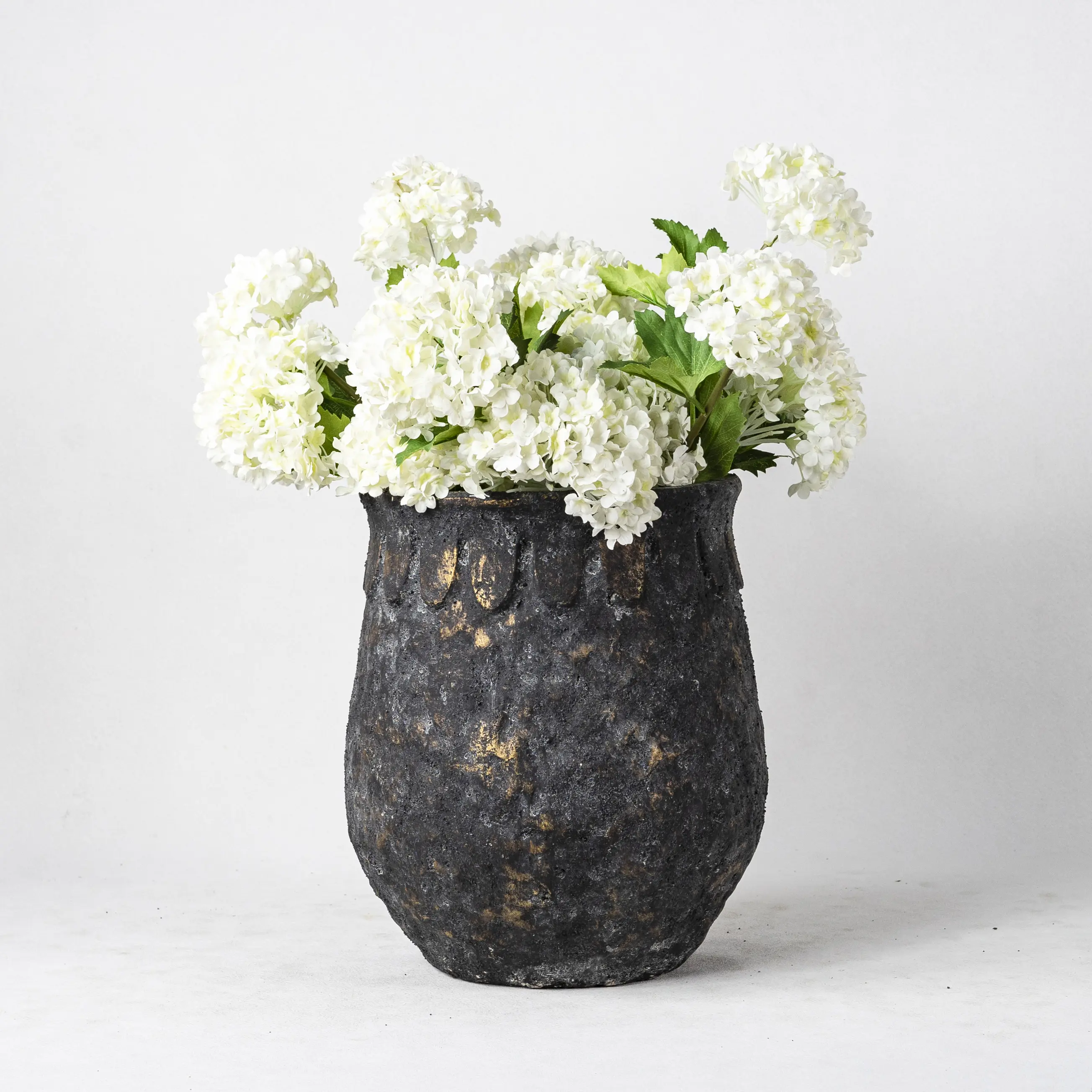
Форма и пропорции
Варианты: индивидуальные диаметры, конические или прямые стенки, встроенные ножки или ободки-блюдца。
Замечания по производству: Изменение формы может потребовать открытия новой пресс-формы или изменения технологического процесса (ручной труд может быть более гибким), что повлияет на MOQ и стоимость пресс-формы.
Случай использования: Для комнатных зеленых растений (высоких укореняющихся растений) требуются глубокие горшки; настольные мини-растения с неглубоким горшком
Текстура и обработка поверхности
Варианты: резные узоры, отделка в виде штрихов и пятен, матовая шлифовка, глянцевая внутренняя отделка, акценты из необработанной глины。
Стоимость/влияние: Механическая или ручная резьба требует больших затрат ручного труда; Особые текстуры выгодны для премиальной цены.
Пример использования: Дизайнерские магазины используют вырезанные вручную текстуры для визуальной дифференциации, в то время как электронная коммерция использует легко воспроизводимые формы для гравировки.
Функциональная настройка
Опции: встроенные дренажные каналы, съемные вкладыши (легкие пластиковые или стеклопластиковые вкладыши для использования на крыше), конструкции с низким центром тяжести и встроенными блюдцами.
Стоимость/влияние: Улучшенные характеристики обычно предъявляют более высокие требования к практичности и расширяют рынок сбыта (например, адаптация крыши/балкона).
Применение: Для открытых балконов гостиниц требуются ветрозащитные крепления и брызгозащитные поддоны; в розничной торговле можно продавать внешние тазы с внутренними вкладышами (привлекательный внешний вид и удобный внутренний вкладыш).
Упаковка и комплекты
Дополнительно: фирменные коробки, карточки по уходу, крафтовые вкладыши, подарочные рукава, комплекты (горшок + растение + пакет почвы)。
Воздействие: Хорошая упаковка улучшает впечатление от распаковки и может значительно повысить конверсию подарочной продукции. Стоимость упаковки обычно составляет менее 5-15% от цены единицы товара, но она оказывает значительное влияние на воспринимаемую ценность.
Пример использования: Фестивальные подарочные коробки и корпоративные подарки B2B - предпочтительный выбор для элитной розницы.
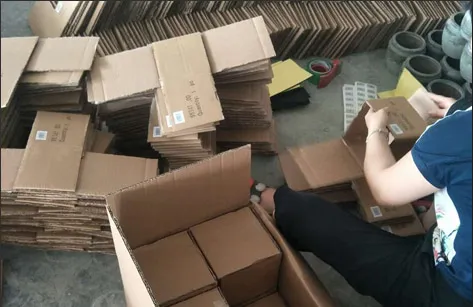
Производство и сроки выполнения заказа
Реалистичная схема разработки керамических изделий выглядит следующим образом:
1.Бриф и концепция → 2. Эскиз и 3D-макет → 3. Прототип/образец → 4. Инструментальная оснастка/форма → 5. Пробная партия → 6. Полное производство.
Предполагаемые сроки:
- Небольшие ремесленные партии: 4-8 недель (ручная работа, низкий MOQ).
- Массовое производство литьевых форм: 8-14 недель (оснастка + серийное производство).
MOQ варьируется: тиражи ручной работы могут составлять десятки штук, а литые изделия, как правило, требуют сотен. Вы можете снизить MOQ, ограничив количество цветов или распределив расходы на оснастку между SKU.
Идеи маркетинга и мерчандайзинга
Персонализированный керамические изделия это инструменты маркетинга, а не просто инвентарь:
- В магазине: витрины с ограниченным тиражом и POS-карты, рассказывающие о производителе.
- Онлайн: конфигураторы "собери свой саженец" или курируемые комплекты (горшок + растение + карта ухода).
- Тактика запуска: предварительные заказы, посев через влиятельных лиц, а также поп-апы в отелях/кафе для живой экспозиции.
- Содержание: видеоролики о глазури за кулисами, интервью с мастерами и руководства по уходу для продления срока годности.
Измеряйте успех по показателям AOV, коэффициенту продаж, упоминаниям в социальных сетях и повторным заказам.
Заключение
Пользовательское керамические изделия - Особенно персонализированные плантаторы - они позволяют брендам создавать запоминающуюся обстановку и получать более высокую прибыль. Они подходят для магазинов, гостиниц, кафе и брендов DTC, которые стремятся к дифференциации и рассказыванию историй в физическом пространстве.
О компании SANTAI, вашем надежном поставщике

Сантай - это профессиональный производитель керамического декорапоставляет широкий ассортимент декоративной керамики, предназначенной как для дома, так и для коммерческих помещений. Наша сила заключается в способности фабрики эффективно обрабатывать массовые заказы, сохраняя при этом постоянство качества и отделки.
Через Индивидуальные решения для керамического декораМы помогаем клиентам создавать уникальные коллекции, которые отражают их потребности на рынке. С сайта Оптовые керамические вазы и плантаторы Мы предлагаем гибкие варианты, подкрепленные надежными производственными мощностями.
Готовы протестировать индивидуальную линию? Запросите бесплатный макет за одну плантацию с вашим логотипом и цветовой гаммой, или попросите предоставить комплект образцов, чтобы оценить качество и цену. Закажите консультацию, чтобы начать превращать свой бренд в осязаемый, продаваемый стиль.
